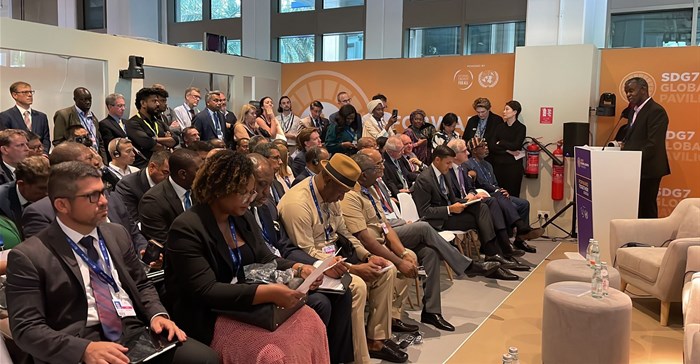
The BESS Consortium, a multi-stakeholder partnership, is a key initiative aimed at transforming energy systems across low- and middle-income countries (LMICs) with a goal to secure 5GW of BESS commitments by the end of 2024, and to deploy these by the end of 2027. This is a crucial step towards achieving the estimated 400GW of renewable energy needed to alleviate energy poverty by 2030 and save a gigaton of CO2.
BESS is pivotal in enhancing the reliability of grids and accommodating the variable renewable energy sources that are essential for powering economic development. In many cases, a combination of BESS and renewables are already cheaper than fossil fuel alternatives.
The first-mover countries in the BESS Consortium will be supported by resource partners including GEAPP, the African Development Bank (AfDB), the World Bank, Asian Development Bank (ADB), Inter-American Development Bank (IDB), the Agence Française de Développement (AFD), German Agency for International Cooperation (GIZ), RMI, Africa50, Masdar, Infinity Power, AMEA Power, National Renewable Energy Laboratory (NREL), Net Zero World, and Sustainable Energy for All (SEforALL). Additional partners and countries are expected to join in the future.
“The Global Leadership Council was formed to expedite change, and bring forward transformative initiatives that will cut emissions, create jobs and expand access to clean and affordable energy in low- and middle-income countries," said Jonas Gahr Støre, prime minister of the Kingdom of Norway and co-chair the Global Leadership Council.
"Three months ago, we committed to establishing the BESS Consortium, and already we have countries, resource partners and champions on board. This is only the beginning; we must continue to move at collective speed and scale.’’
New research from The Rockefeller Foundation shows that keeping global warming from breaking the 2°C threshold will require unprecedented global collaboration. BESS is a critical technology to achieve that goal, but progress is being severely hindered by unfavourable policies and regulations, high financing costs, long project lead times, and other challenges.
To accelerate the shift to cleaner and more affordable energy systems, the World Bank and the Energy Sector Management Assistance Program (ESMAP) recently published a comprehensive framework, Unlocking the Energy Transition: Guidelines for Planning Solar-Plus-Storage Projects. Written for policymakers and project developers, the report provides a step-by-step approach to planning and executing utility-scale solar photovoltaic projects, including practical advice on feasibility assessments, business model selection, risk allocation, and navigating the procurement process.
Dr Rajiv J. Shah, president of The Rockefeller Foundation and co-chair of the Global Leadership Council said, “Without sufficient storage capacity, countries will be unable to add renewable energy to their grids at the scale needed to reduce emissions and create economic opportunity. The BESS Consortium is an example of the sort of big, bold action required to break down the barriers keeping so many people and communities from joining the climate transformations underway.”
In addition to securing 5GW of BESS commitments in LMICs and deploying $1bn in concessional finance, the Consortium will accelerate project deployment, work to improve the regulatory environment, build a favourable market for BESS, and unlock commercial and public financing. Countries, utilities, and resource partners in the Consortium will partner to identify and co-develop tailored packages of support for BESS investment. These will be refined and negotiated between country stakeholders and partners with complementary advocacy and accelerating actions championed by the Consortium.
“The Global Energy Alliance’s GLC initiatives including the groundbreaking BESS Consortium are driving real actionable progress. We are determined to deliver scalable solutions and measurable outcomes at speed by the time world leaders reconvene at COP29 next year," said Joseph Nganga, interim MD and VP of Africa at GEAPP.
"In Malawi for example, we are supporting the government to deploy and operate a 20MW BESS project which, by 2030, will improve access and power stability for 3 million people, improve the lives of 450,000 and avoid 20,000 tons of CO2. Our unwavering dedication to sustainability is leading us to set new benchmarks and inspiring others to join this crucial journey towards a greener future.”